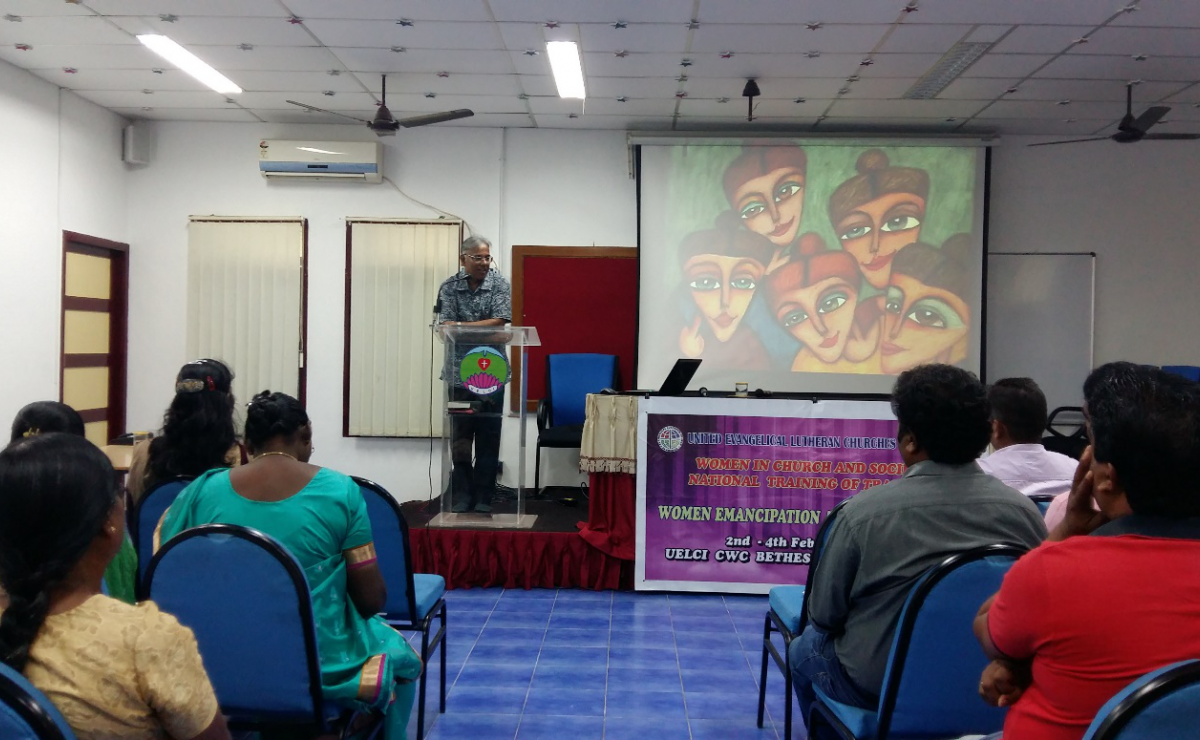Addressing Gender Justice in Churches

A regional workshop on Gender Equality and Justice in Church and Society for the Telugu region took place at Chirala, AELC from 14-16 December 2015 and the ELCA Phase–II National workshop on ELCA Women Emancipation and Atrocities against Women, Training of the Trainers took place at CWC, Bethesda Hall, Chennai from 2-4 February 2016. A field visit to Kilmaampattu village was also part of the Phase II workshop. The main topics covered were, Understanding Women’s Rights, Gender Equality and Justice, Legal Rights and Women’s Right and Understanding Transgender and their rights. Around 186 participants attended the programs. Ms.Karin Bodin from Church of Sweden encouraged women and young girls of Kilmaampattu village of ALC to speak-out on violence against women and encouraged parents to provide education for girl children just as they do for their boys.
The main speakers at the events were, Dr. Sarada Devi, Rev. Paul Prakasam, Adv. Anna Shobanna, Dr. Mrs. P.K Vadani, Mrs. Isabel Richardson, Ms. Dhanam and Ms.Karin Bodin (Church of Sweden). The speakers made it very clear that every woman from the AELC churches should know and raise their voices about violence against women. Dr. Gayatri Devi spoke on women’s legal rights, protection of women, mental, physical and sexual torture. The participants were informed that women have every right to complain to the police when they experience violence of any kind and if the police fail to act upon it, they should approach NGOs which work for protection of women. If that also fails, women can directly proceed to court.
"Openly discuss issues on gender-based violence in churches and take action to stop it" - Prof. Dr. P.K. Vadani
Prof. Vadani challenged the participants to openly discuss issues on gender-based violence in churches and take action to stop it. She mentioned that this could be done through powerful Bible Study sessions. During the plenary discussions, the groups came forward with the analysis that churches need to focus a lot more on gender based violence and women’s rights and that churches should use strong Biblical references as a tool in sensitizing congregations to stop violence and encourage women to take up leadership roles in the church. Most of the participants felt highly motivated by the sessions and the brainstorming discussions helped them to get a deeper insight on gender-based violence. The discussions on the reasons for absence of women in leadership encouraged the participants to continue sensitizing member churches. Of all the plenary meetings, the most important was on the legal rights of women as it covered important issues such as trafficking. The exposure visit to Madras Christian Council of Social Service (MCCSS) by churches and members of the community brought to light the reality of human trafficking.
Contributed by Ranjita Borgoary, Secretary, WICAS, UELCI.

